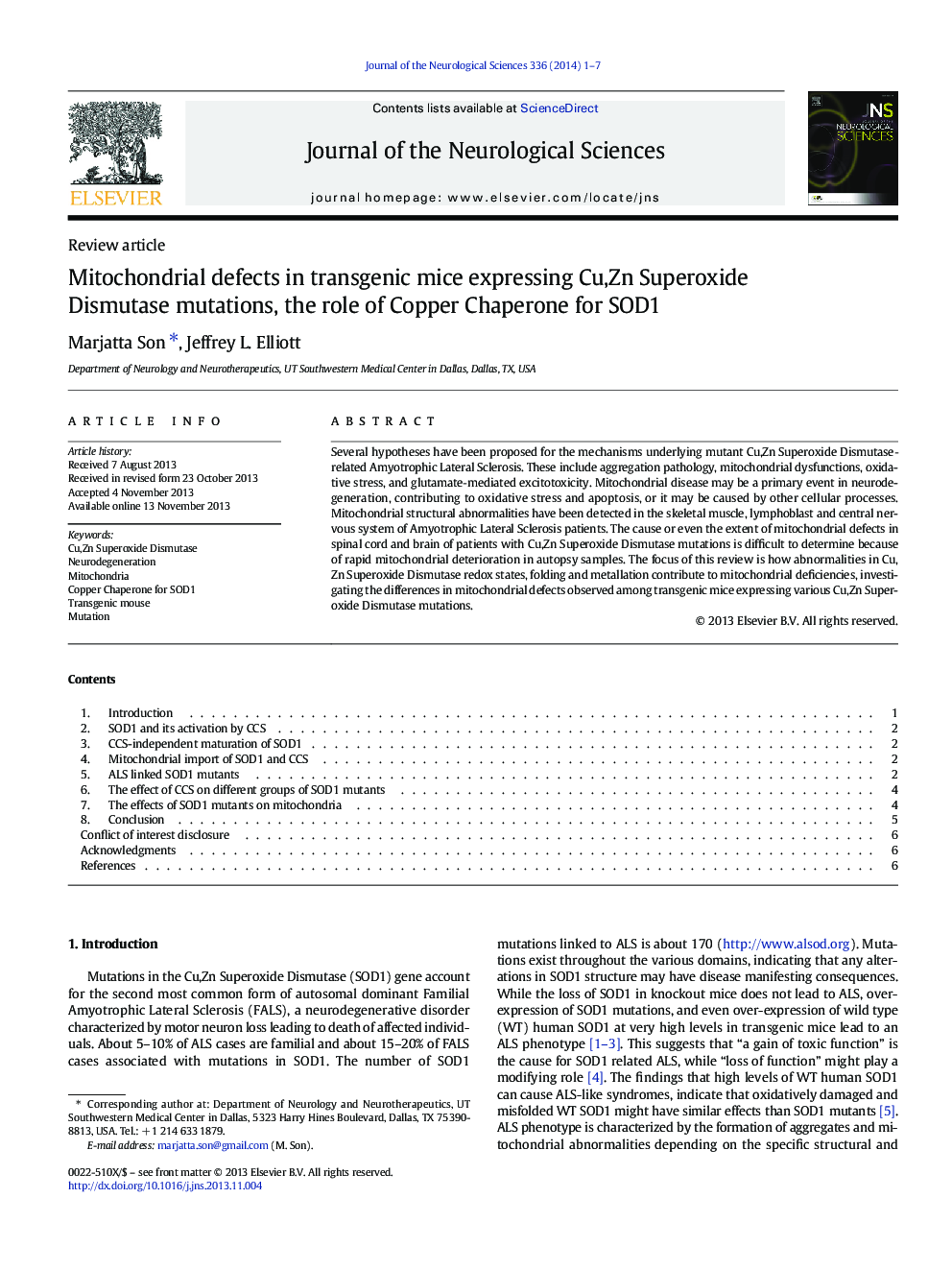| Article ID | Journal | Published Year | Pages | File Type |
|---|---|---|---|---|
| 8278385 | Journal of the Neurological Sciences | 2014 | 7 Pages |
Abstract
Several hypotheses have been proposed for the mechanisms underlying mutant Cu,Zn Superoxide Dismutaseârelated Amyotrophic Lateral Sclerosis. These include aggregation pathology, mitochondrial dysfunctions, oxidative stress, and glutamateâmediated excitotoxicity. Mitochondrial disease may be a primary event in neurodegeneration, contributing to oxidative stress and apoptosis, or it may be caused by other cellular processes. Mitochondrial structural abnormalities have been detected in the skeletal muscle, lymphoblast and central nervous system of Amyotrophic Lateral Sclerosis patients. The cause or even the extent of mitochondrial defects in spinal cord and brain of patients with Cu,Zn Superoxide Dismutase mutations is difficult to determine because of rapid mitochondrial deterioration in autopsy samples. The focus of this review is how abnormalities in Cu,Zn Superoxide Dismutase redox states, folding and metallation contribute to mitochondrial deficiencies, investigating the differences in mitochondrial defects observed among transgenic mice expressing various Cu,Zn Superoxide Dismutase mutations.
Keywords
Related Topics
Life Sciences
Biochemistry, Genetics and Molecular Biology
Ageing
Authors
Marjatta Son, Jeffrey L. Elliott,
